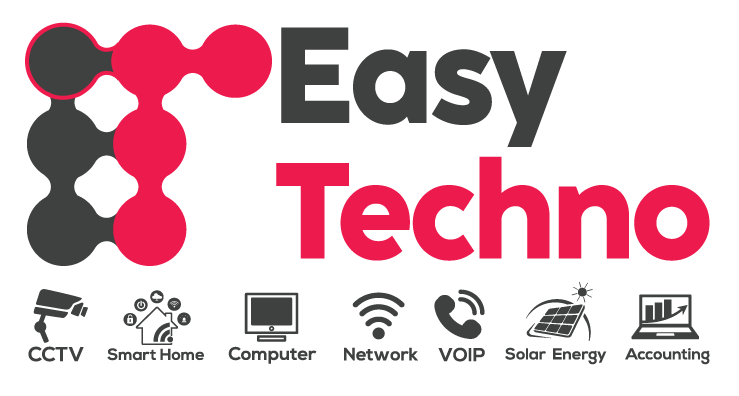Juniper vs. Fortinet – Choosing the Right Firewall for Your Saudi Arabia Network

Juniper vs. Fortinet – Choosing the Right Firewall for Your Saudi Arabia Network
In the rapidly evolving digital landscape of Saudi Arabia, driven by ambitious initiatives like Vision 2030, robust network security is no longer a luxury but a fundamental necessity. As businesses and government entities accelerate their digital transformation, the need for effective firewall solutions to protect critical data and infrastructure becomes paramount. Two names frequently stand out in the enterprise firewall market: Juniper Networks and Fortinet. Both offer powerful, feature-rich platforms, but they approach network security with different philosophies and architectural designs. For organizations in Saudi Arabia, selecting the right firewall involves carefully evaluating these differences against specific operational needs, security requirements, and long-term strategic goals.
This article delves into a comprehensive comparison of Juniper and Fortinet firewalls, examining their core strengths, features, management capabilities, and target use cases. By understanding the nuances of each vendor’s offering, businesses in the Kingdom can make an informed decision that aligns with their unique environment and contributes to a secure and resilient network posture.
Understanding the Core Offerings: Juniper SRX vs. Fortinet FortiGate
Both Juniper and Fortinet offer a wide range of security platforms catering to various network sizes and complexities, from small branch offices to large data centers and service provider environments. However, their flagship firewall lines are the Juniper SRX Series and the Fortinet FortiGate series.
Juniper SRX Series: Performance and Routing Excellence
Juniper’s SRX Series firewalls are built on the foundation of the Junos OS, the same reliable operating system that powers Juniper’s routing and switching platforms. This shared architecture provides inherent strengths in routing capabilities and integration within a Juniper-centric network infrastructure. SRX devices are known for their high performance, particularly in demanding enterprise and service provider environments where high-throughput routing and segmentation are critical.
Key characteristics of the Juniper SRX series include:
- **Robust Routing & Networking:** Leverages Junos OS for sophisticated routing, switching, and VPN capabilities, making them ideal for complex network architectures.
- **Integrated Security Services:** Offers next-generation firewall (NGFW) features including intrusion prevention systems (IPS), anti-malware, web filtering, and application visibility and control.
- **Security Intelligence (SecIntel):** Integrates with Juniper’s SecIntel feeds for threat intelligence, enhancing detection capabilities against known threats.
- **Scalability:** A wide range of models, from small branch firewalls (SRX300 series) to high-end data center firewalls (SRX4000 and SRX5000 series), provides scalability for diverse needs.
- **Unified Management:** Managed through Juniper’s centralized management platforms like Security Director, which provides a unified view of security policies across multiple SRX devices.
SRX firewalls are often favored by organizations that require deep integration with their existing Juniper routing and switching infrastructure or those that have complex networking requirements alongside security needs.
Fortinet FortiGate Series: Integrated Security Fabric and High Throughput
Fortinet’s FortiGate firewalls are the cornerstone of the Fortinet Security Fabric, a broad portfolio of security products designed to work together seamlessly. FortiGate firewalls are renowned for their high performance, largely attributed to Fortinet’s proprietary Security Processing Units (SPUs) – ASICs (Application-Specific Integrated Circuits) designed to accelerate security functions like threat inspection and encryption.
Key characteristics of the Fortinet FortiGate series include:
- **High Performance with ASICs:** SPUs enable high throughput and low latency for demanding security inspection tasks.
- **Comprehensive Security Fabric:** Tightly integrates with other Fortinet products (FortiAnalyzer, FortiManager, FortiEDR, FortiSandbox, etc.) for a unified, automated security posture.
- **Broad Feature Set:** Offers extensive NGFW features including application control, IPS, web filtering, anti-malware, built-in SD-WAN capabilities, and SSL inspection at scale.
- **Ease of Management:** FortiManager provides centralized management for large deployments, while FortiAnalyzer offers detailed logging and reporting. FortiOS, the operating system, is generally considered user-friendly.
- **Wide Product Range:** An extremely broad portfolio covers everything from entry-level desktop units (FortiGate 40/60 series) to chassis-based data center firewalls (FortiGate 7000 series).
FortiGate firewalls are often chosen by organizations seeking a broad, integrated security platform, high performance for threat inspection, and a potentially simpler management experience, especially within the Fortinet ecosystem.
Direct Comparison: Key Considerations for Saudi Arabia
When evaluating Juniper SRX and Fortinet FortiGate for a network in Saudi Arabia, several factors come into play:
1. Performance and Throughput
Both vendors offer high-performance options. Fortinet often highlights its SPU ASIC advantage for raw throughput and low latency, particularly for common NGFW tasks like intrusion prevention and SSL inspection. Juniper SRX, especially the higher-end models, also provides excellent performance, leveraging optimized software and hardware acceleration. The best choice depends on the specific traffic patterns and inspection needs of the network. For high-bandwidth environments requiring extensive deep packet inspection, Fortinet’s ASIC advantage can be significant, while Juniper excels in complex routing and high-session-count scenarios.
2. Security Features and Effectiveness
Both offer robust NGFW capabilities. Fortinet’s strength lies in the breadth of its integrated Security Fabric, providing a wide array of security functions from the endpoint to the cloud, all managed under one vendor. FortiGate’s application control is highly granular. Juniper’s strength is often seen in the depth of its security intelligence (SecIntel) and its focus on preventing advanced threats through detailed analysis. The effectiveness often comes down to how well the features are configured and managed within the specific threat landscape faced by organizations in Saudi Arabia.
3. Management and Usability
Management preference can be subjective. Juniper’s Junos OS is powerful and consistent across its product lines but can have a steeper learning curve for those new to it. Fortinet’s FortiOS is generally considered more intuitive for initial configuration, and its centralized management tools (FortiManager/FortiAnalyzer) are well-regarded for handling large, distributed deployments. Organizations should consider the expertise of their local IT staff or the capabilities of their chosen IT partners, such as easytechno, when evaluating management platforms.
4. Scalability and Portfolio Depth
Both vendors offer solutions across the spectrum, but Fortinet’s portfolio of FortiGate models is arguably broader, providing more granular steps in performance and feature sets, which can be advantageous for matching specific branch office or small business needs cost-effectively. Juniper’s SRX range is also comprehensive, excelling particularly in the mid-to-high enterprise and service provider tiers, integrating tightly with their core networking gear.
5. Integration Capabilities
Fortinet’s key differentiator is the Security Fabric, which aims to provide seamless integration across its many security products. This can simplify security operations and improve threat response. Juniper focuses on its Connected Security strategy, integrating security with networking and leveraging open standards for broader interoperability with third-party solutions.
6. Cost
Cost is always a significant factor. This includes not just the initial hardware purchase but also licensing fees for security subscriptions (threat intelligence, IPS signatures, etc.) and ongoing support. Fortinet is often perceived as offering a competitive price point, especially for its mid-range devices, providing good value for performance and features. Juniper’s pricing is competitive, particularly in enterprise and data center segments where its robust routing and performance are highly valued. Total cost of ownership (TCO), including management overhead and support, should be carefully calculated.
7. Local Support and Expertise in Saudi Arabia
Having access to reliable local support and expertise is crucial for deploying and maintaining complex network security solutions. Both Juniper and Fortinet have a presence and partner ecosystems in Saudi Arabia. When considering deployment or ongoing management, evaluating the capabilities and availability of local certified partners is essential. Companies like easytechno provide comprehensive IT infrastructure services and network security solutions tailored for the Saudi market, offering valuable local support for either platform.
Applying the Choice to the Saudi Arabian Context
For businesses in Saudi Arabia, several market-specific factors influence the decision:
- **Compliance:** Adhering to local regulations set by bodies like the National Cybersecurity Authority (NCA) is mandatory. Both platforms offer features that can help meet compliance requirements, but it’s important to verify specific capabilities and reporting features.
- **Digital Transformation Goals:** Organizations heavily invested in cloud adoption, IoT, or building Smart City infrastructure as part of Vision 2030 may lean towards platforms that offer strong cloud integration, IoT security features, and scalable performance.
- **Existing Infrastructure:** If a business already has a significant investment in one vendor’s networking equipment, choosing the same vendor for security often simplifies management and integration.
- **Threat Landscape:** Understanding the specific types of cyber threats prevalent in the region can help determine which platform’s threat intelligence and prevention capabilities are a better fit.
Conclusion
Choosing between Juniper SRX and Fortinet FortiGate firewalls for a network in Saudi Arabia is a strategic decision with long-term implications. Both are industry leaders offering high-quality, capable platforms. Juniper SRX excels in environments requiring robust routing, deep integration with Juniper networking gear, and sophisticated security intelligence, often appealing to enterprises and service providers with complex network designs. Fortinet FortiGate shines with its high performance driven by ASICs, broad and integrated Security Fabric, extensive feature set, and generally user-friendly management, making it a strong contender for organizations prioritizing throughput, ecosystem integration, and simplified management across a wide range of deployment sizes.
The ideal choice is not universally one over the other but depends entirely on the specific needs, budget, technical expertise, and strategic direction of the organization in Saudi Arabia. Factors such as existing infrastructure, compliance requirements, desired level of management complexity, and the importance of an integrated security ecosystem vs. best-of-breed components should all be carefully weighed. Engaging with cybersecurity professionals or partners who understand the local market and the capabilities of both platforms can provide invaluable insight to ensure the selected firewall provides optimal protection and performance for years to come.
